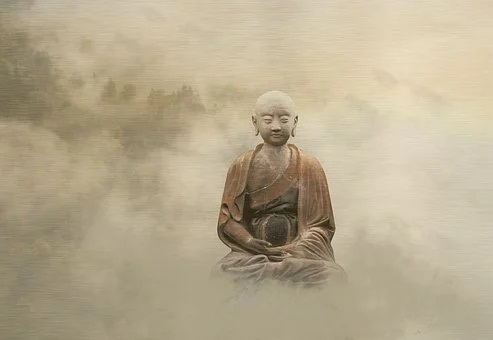Without the Buddhist teachings and practice, most people are still able to endure suffering; this is because they hold on to hope, even if it is very slight. Faced with good fortune, however, it is difficult for them to remain composed; with money, power, and status, they become megalomaniacal and self-important. Unable to return to their simple life before, and even less willing to listen, reflect, and practice the teachings, they indulge in material pleasures and gradually deplete their blessings.
A lot of people are envious of the rich and are mistaken in thinking material things can bring all kinds of happiness. Further influenced by materialism in the West, they relentlessly pursue a life of material pleasures. Except for those who understand the Dharma and are serious practitioners, many of the rich are not happy and are actually more troubled and afflicted than ordinary people. If we examine how they make and spend their fortune, we may discover countless negative deeds being committed behind the façade of glittering wealth. How can this be a blessing?
Thus the Buddha and many Buddhist masters explained there is no absolute happiness in the three realms, particularly the desire realm. Although there is happiness in life, it is relative and short-lived; within happiness are seeds of suffering.
~Depicted from ARE YOU READY FOR HAPPINESS - How to Face Suffering and Happiness-How to Face Happiness











